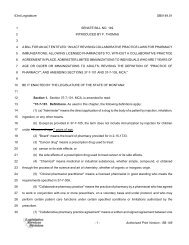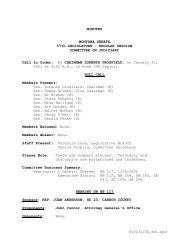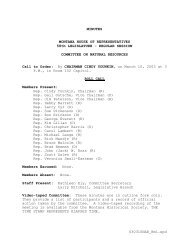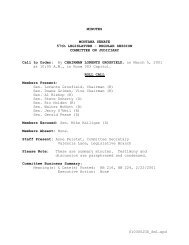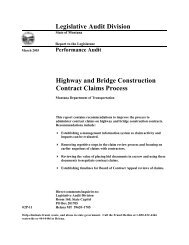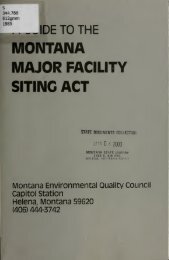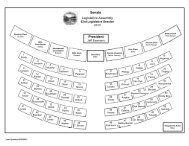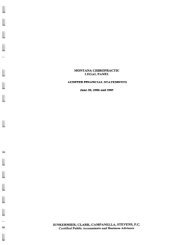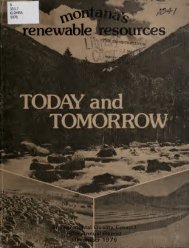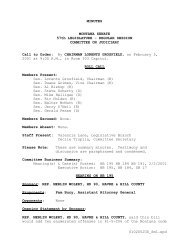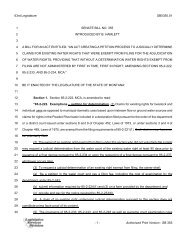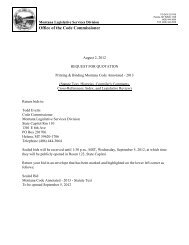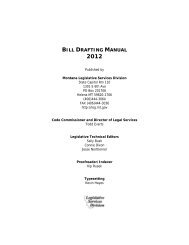Public Comment. Volume III - Montana Legislature
Public Comment. Volume III - Montana Legislature
Public Comment. Volume III - Montana Legislature
Create successful ePaper yourself
Turn your PDF publications into a flip-book with our unique Google optimized e-Paper software.
projects delayed it is the citizens who rely on the services provided to bear that<br />
additional expense, through higher fees and prices. (Burlington Northern and<br />
Sante Fe Railway Company, Conoco, and the <strong>Montana</strong> Power Company)<br />
Exhibit 9 from last meeting -- Burden of Proof<br />
The distinction between condemnation by a public entity and condemnation by<br />
a private entity is illusory. In all cases of condemnation, property is being taken<br />
because the public interest requires the taking (7030-1 I), and4he property is<br />
being taken to fulfill that public interest. 'This change would elevate the<br />
interests of a siqgle private individual above those of the public in general. 'This<br />
would completely gut the powers of erninent domain.<br />
This change in the burden of proof is also poorly conceived. For example, the<br />
current burden as it pertains to the greatest public goodlleast private injury<br />
requirement is that the condemnor's decision about the location of the project<br />
will not be overturned except "on clear and convincing proof that the taking has<br />
been excessive or arbitrary," Shara, 61 0 P.2d at 137 citing <strong>Montana</strong> Power Co.<br />
v. Bokma 457 P.2d 769, 774-75. The proposal is to raise the burden of proof<br />
on the condemnor without changing the burden on the landowner. This<br />
presumably would require ,the condemnor to establish the greatest public<br />
goodlleast private injury requirement by clear and convincing evidence, but<br />
require the landowner to carry the same burden to defeat the showing. That<br />
makes no sense. It is also contrary to the court's view that a condemnor's<br />
choice of location is to be given great weight because it has the expertise and<br />
detailed knowledge necessary to make the determination.<br />
Furthermore, while the right to hold property is highly valued, the right to<br />
acquire property by errrinent domain is also recognized in the <strong>Montana</strong><br />
Constitution (Article II, Section 29). As discussed in the Draft Final Report the<br />
power to condemn is "inherent in all sovereign governments and, if not checked<br />
by constitutional and statutory provisions, is limitless." Draft Final Report, p. 47.<br />
'The justification for changing the burden of proof presumes that the power to<br />
condemn abridges landowner's rights; in fact, condemnation statutes abridge<br />
and limit the state's otherwise limitless and paramount power to condemn for<br />
the public good. Finally as discussed at the recent hearing, logic would require<br />
an even higher burden of proof on the landowner than clear and convincing.<br />
Since there is no higher burden of proof then the court is left with the dilemma.<br />
(Express Pipeline)<br />
Cenex supports the findings and recommendations of the study, as presented<br />
in Chapter 7 of the draft Report. (Cenex)<br />
EQC Eminent Domain Study -39-



